This is the moment Oliver Fitzsimmons, who at the time was called Alex, made a life-changing announcement at the dinner table.
It was captured by a UK TV crew who were filming a documentary for Channel 4 about a children’s hospital and had been following the family for months. We see Oliver, who prefers the pronouns "they/their/them" to "he" or "she", tell their family – mum Jo, dad Gary, and brother Henry – “I am, like, 98.7% male. Wa-hey! There you go.”
Immediately, it cuts to Oliver’s mother telling the cameras that she almost knew it was coming, and Oliver’s father admits, “I didn’t have a clue.” It then cuts back to the scene at the dinner table, where Jo asks, “How did you work out that percentage?”
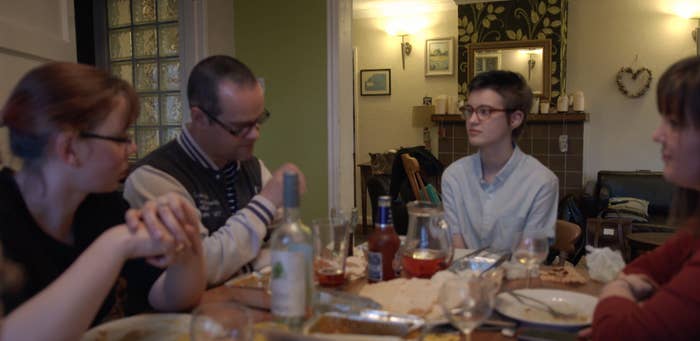
“I don’t know,” says Oliver. “I think 99% is a bit of a cliché.” As the family laugh for a moment, father Gary takes over. “You just have to be who you are. And you know, Mum and I, that’s all we desire for both of you – just that you feel free to be who you are.”
But the journey to this point has been long and painful for the family – and the year since it was filmed has seen more dramatic changes. When the cameras started following the Fitzsimmons family, it was the darkest period of their lives. Oliver, who has high-functioning autism, had recently come out of an eating disorders unit after nine months and after more than two years suffering from anorexia – unable to eat, and starving themselves. They were also self-harming. Neither Oliver nor their parents had any idea what was the cause.
“I’ve never really understood myself emotionally,” Oliver told BuzzFeed News – difficulty in interacting with others and using language in an abstract way can be a feature of people with high-functioning autism. “I don’t know how to verbalise emotions, which is again why my struggle with mental health occurred, because that [self-harming and an eating disorder] was the only way to show people how I felt.”
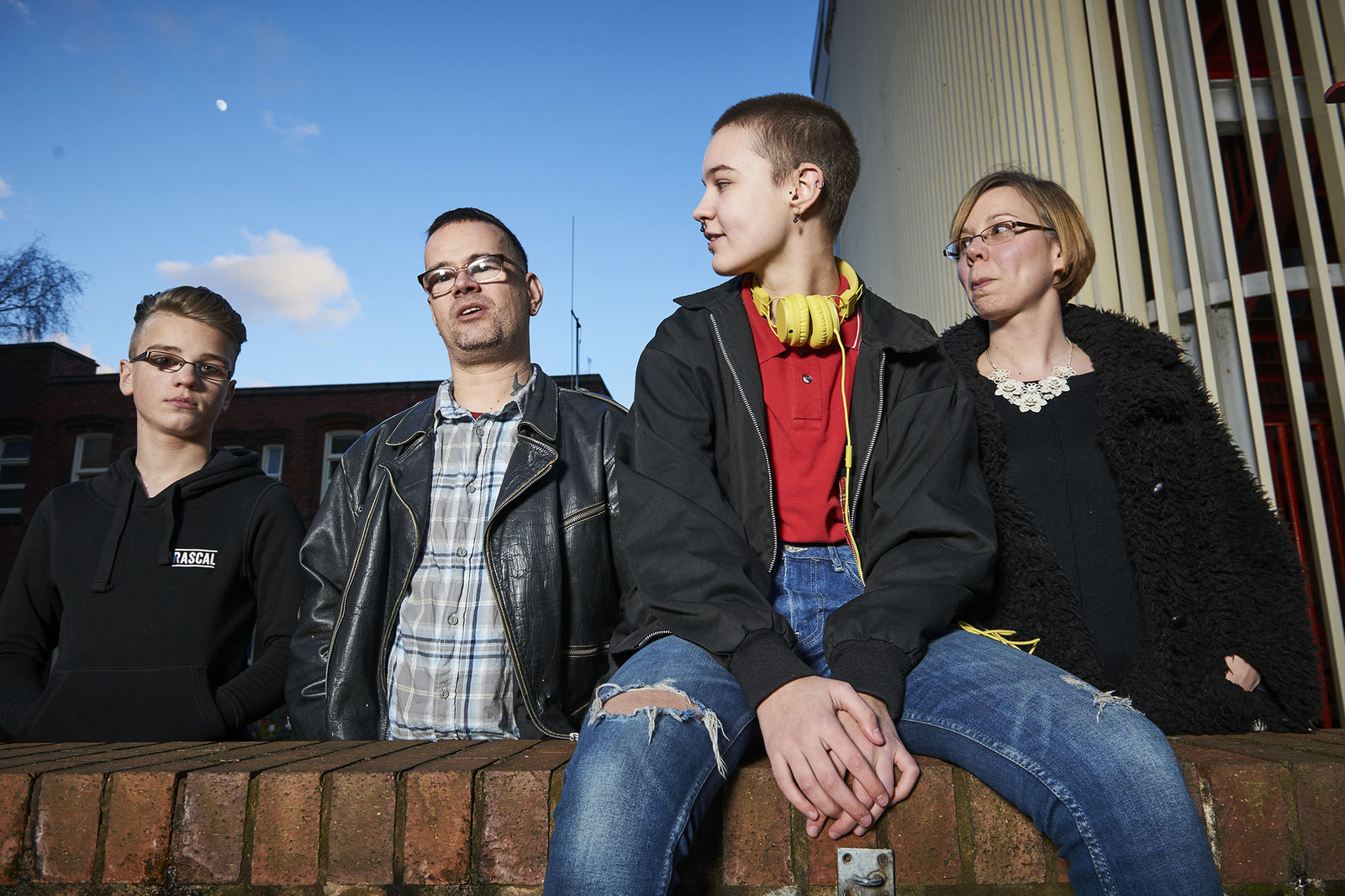
Earlier in the documentary, Inside Birmingham Children’s Hospital – which in this episode focuses on the mental health of young patients – we see Oliver turning up to the hospital in acute distress, confused, having suicidal thoughts, and asking for help. Within a few months, however, there is the scene at the dinner table, which was filmed last summer. The change in Oliver over a couple of months between the hospital and coming out at dinner is vast and swift. But how did that happen?
“It was really interesting,” said Oliver. “I filmed with a guy called Mark. He’s really cool, and one of the first things he asked me the first time he interviewed me with a camera was, ‘Who are you?’ And he touched on gender and that made me think, ‘Actually, yeah, who am I? What is my gender?’ Gender had never been something I thought about. I thought I was born a girl and that was it, and there were no options.”
That single question triggered a process of self-discovery, and within just a few weeks, Oliver’s mental health started improving as an explanation for their distress began to surface: They weren’t a girl.

“It really happened because of the show; I think it would have taken a lot longer if I hadn’t been part of this,” said Oliver. “It made sense of the past seven years of my life. It all fell into place, which is really overwhelming. I can see now that my eating disorder was to prevent the growth of my female body, but at the time, I couldn’t understand why I wasn’t eating, why I self-harmed, and why I struggled with anorexia.”
In hindsight, the signs were there. At 13, Oliver had begun – without understanding why – asking to be called Alex (their name at birth was an unambiguously female, rather than unisex, name).
But by 15, once the camera crew had started following them around and the self-revelations started surfacing, it wasn’t long before Oliver was ready to come out to their parents. Was it not nerve-wracking or worrying, especially with a film crew there?
“Honestly, it wasn’t something I thought about," Oliver told BuzzFeed News. "I thought, Being open about it is going to help me. By the time I told them I was already doing very well and had gotten out of that dark place. So quite frankly I wasn’t bothered if they didn’t like it or not. I’m sorry, but that’s who I am. They may be my parents but gender and gender identity is not something that can be questioned by anyone else.”
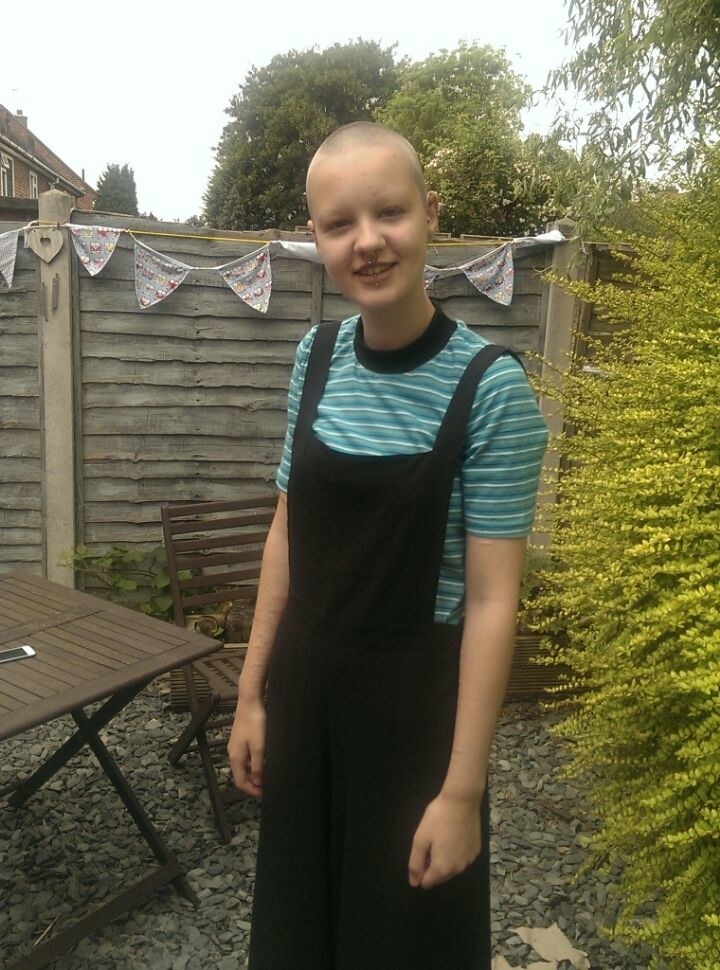
Despite this, the reaction from Oliver’s parents, of acceptance, understanding, and unconditional love, proved transformative.
“From the age of 14 I wanted to run away to London and live in a shelter,” said Oliver, “because I didn’t feel my parents understood me or who I was. But telling them and them being so supportive really showed me that that wasn’t the case, and they do care about me and they understand me better than anyone else.”
Within weeks of coming out, Oliver went to Pride for the first time.
“I cried a lot and I met a lot of incredible people,” they said. “I was like, this is my community.”
Over the last year, since filming ended, Oliver’s life has blossomed. After three years away from school because of the treatment needed for their eating disorder, they are back at a new school, redoing years 10 and 11 in order to finish their GSCEs. Everyone at the school uses the name Oliver, and their head teacher is “incredible”. “She wants to make sure I’m as comfortable as I can be,” said Oliver.
That’s not all.
“It’s been about a year since I last self-harmed,” they said. “I thought that was going to be a permanent part of my life, so it’s nice not to feel like I deserve to harm myself, and to actually realise there are better things out there that I can do when I’m down than to mutilate myself.”
Oliver stopped for a moment, the tone in their voice changing as if now able to look back with some perspective – the perspective of someone who is well. “When I say it now it sounds sad.” Learning to like a body that is “covered in scars” remains a challenge, however.
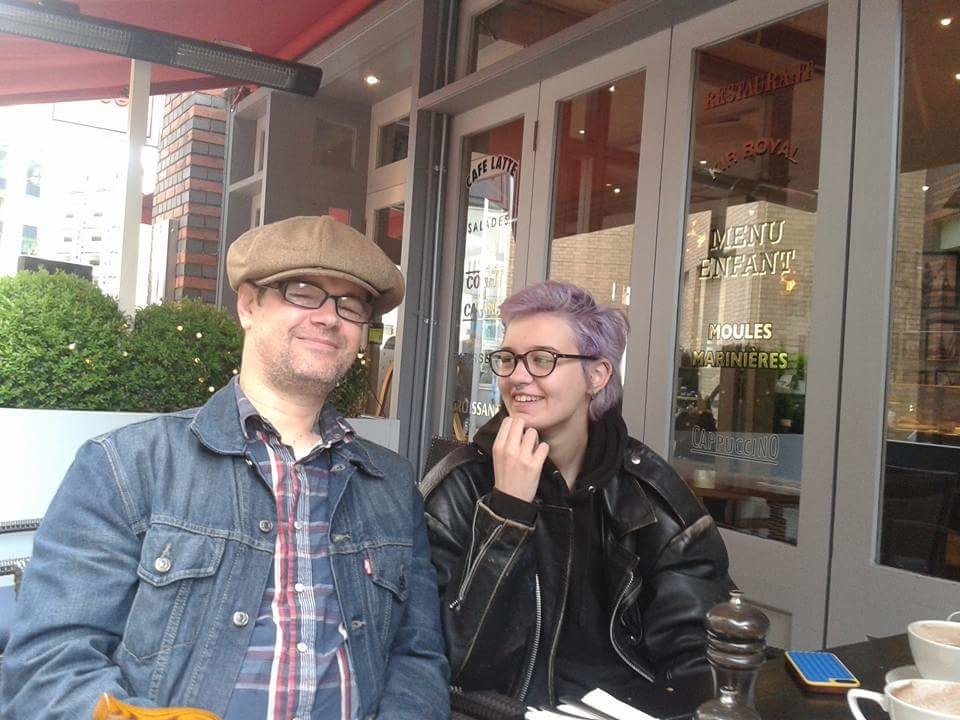
But something else has shifted. “I’ve gone from not eating to eating about 3,000 calories a day and I don’t feel bad about it!” said Oliver, excitedly. “I love food now and it’s nice to be able to say that, because back then I planted an idea in my head that food is evil and it will destroy your life and no one will ever like you.”
Oliver said in a couple of months they will have access to an allotment and is planning to grow vegetables. They hope one day to be entirely self-sufficient.
Being referred to a gender identity clinic has helped Oliver more generally, and they’ve been attending appointments regularly for the last few months. This process has also helped Oliver re-examine their relationship to gender.
“For me, gender isn’t separate boxes; it’s a spectrum,” said Oliver. “Right now I’m not sure I want gender intervention, in terms of surgery or hormones. I don’t want to rush into a decision when I still am not 100% sure who I am and where I fit with gender. When I came out in that clip they filmed and I said, 'I’m 98.7% male' – even then when I came out as a trans man there was still a small percent of androgyny and I’m exploring that a lot more."
Gender, said Oliver, "has been extremely restricting my whole life".
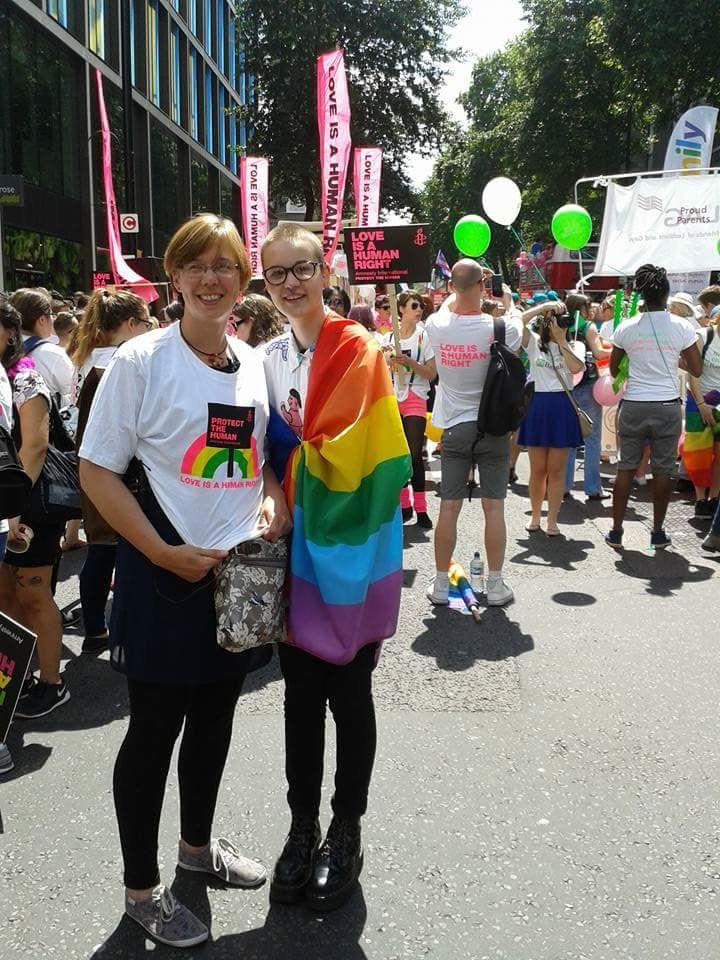
A year on from the filming, Oliver has a new sense of self and identity. “I would call myself agender, which is a lack of gender. Or just genderqueer.”
Oliver’s father, Gary, has also undergone a period of adjustment and understanding, he told BuzzFeed News. He uses the male pronouns talking about his child, perhaps a sign that the “they” pronouns are taking a while to get used to. But either way, Oliver said that although they prefer “they” pronouns, neither “he” nor “she” bothers them. For Gary, of paramount importance is that his child is now happy and healthy.
“When Oliver – and it was immensely courageous on his part – finally said about his gender identity struggle I was almost relieved because it helped fill in a whole load of blanks," said Gary. "I thought, Right, this is beginning to make sense. When Oliver had been in the eating disorder unit it was like a bereavement not having him at home.”
Gary's sentences started to fragment as he talked about that time: “Very difficult. Extremely worrying.”
He added: “There was clearly something really troubling Oliver, something quite profound, and I was totally clueless as to what it is. Now Oliver is a much happier person and as a family we’ve made a lot of progress.”
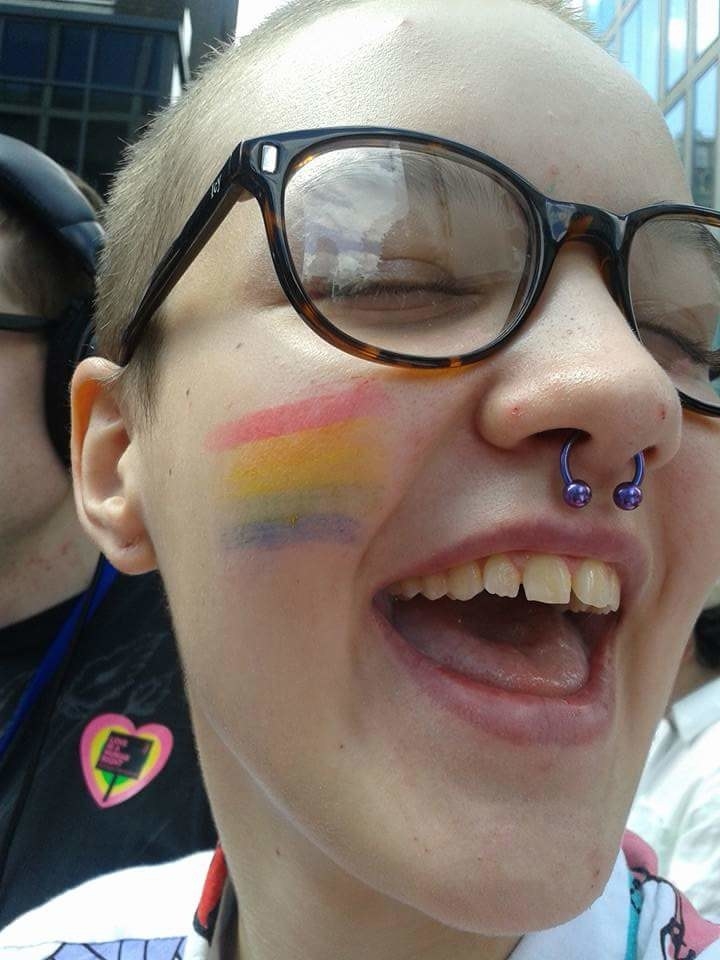
Understanding what underpinned Oliver’s illnesses helped Gary as a parent, too.
“My job as a dad is fairly simple: to provide and protect. Those were my two jobs and I felt like I was categorically failing in them both," he said. "I didn’t know what to do. So for Oliver to journey through that now to be a much happier person…”
He broke off for a moment. “All I want for my children is for them to be happy and safe. So if that means Oliver is a trans child and he’s happy and safe then I’m cool with that.”
What would he say to the parents of other trans, agender, or nonbinary children?
“I don’t know what I’d say,” said Gary, stopping, before thinking again. “Just love your children. That’s all.”
Inside Birmingham Children's Hospital is on Channel 4 Thursday evening at 9pm.
